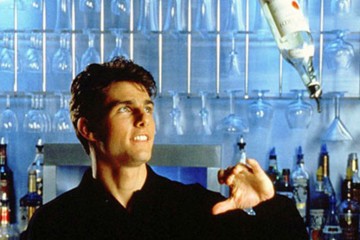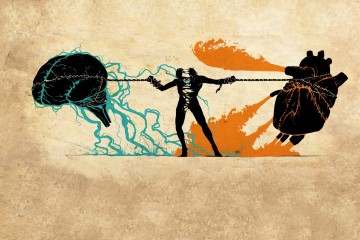My journey of feminism
When Beyoncé dropped her self titled album in 2013, unexpectedly and without promotion, everyone of us rushed out to download it, and just as expected, the album was full of amazing and empowering songs that didn’t disappoint. But one thing I did not expect, was for one song to start a revolution inside of me. As I’m dancing to the song “Flawless” and celebrating my own badassery, an unfamiliar voice begins a monologue in the background. And it spoke to me. With a few words, this unknown person managed to solidify an idea of who I am and where I belong in this world that I was never sure how to vocalize. World, meet Chimamanda Adichie, a Nigeria born activist and most important person in my own feminist journey.
As a little girl, I was taught to serve the men of the house, and that I would not be a complete woman until I learned to cook and clean. Even as young as 10, I utterly rebelled against this idea. No one had taught me to feel like it was beneath me, most of my upbringing was about being a proper girl and preserving my virginity. Yet, there I was; always getting into trouble for refusing to serve dinner to my male cousins because I couldn’t understand why they wouldn’t do it themselves. As I grew older, I often felt conflicted between what I felt was the right way to be a woman and what I’d been taught. Even when I’d already decided I was a feminist, I’d judge the women around me, as well as myself, for doing things that I considered didn’t fit the profile of a feminist, such as aspiring to marriage or wearing a low cut top. But these are the differing ideologies that both men and women who consider themselves to be feminists are conflicted about. What does it really mean to be a feminist? Why does that word carry such a stigma? And why do we think that a feminist should look a certain way if she wants to be taken seriously? In large part, the media is to blame for such confusion (think Jessie Spano), always portraying feminists as feisty, whiny and hateful of men.
Long gone are the days when feminists burned their bras and fought for their right to pee standing up. Though the focus was misguided, it was the beginning of a revolution that is closer than ever to an understanding that both sexes benefit from feminism, and that we are all responsible for the norms that define gender roles. We are not enemies, but equals. We were built to complement each other. Most importantly, we all have the right to make choices for ourselves without being shamed, judged or undermined. You can be feminine and feminist, forward and conservative, sexually provocative and intelligent. We don’t have to belong in one box in order to be respected or have integrity.
We all seem to be confused about this idea. Can I demand to be treated equally but expect a guy to open the door for me? Can I have sex with whoever I want for the sake of pleasure and not be shamed for it? And in return, can I respect a man’s vulnerability without judgement? Allow him to show weakness without threatening his masculinity? The answer to all these questions is yes. Feminism means equality, it means inclusion, it means allowing each other the right to be whoever the fuck we want to be.
Chimamanda Adichie was the voice that spoke to me that day. I took on the task to look her up, listen to the entirety of her message and adapt her point of view as my own. Never have I heard the message of feminism be conveyed so strongly, eloquently and accurately. Born in Nigeria, she has experienced sexism and opposition in a more upfront and obvious way, but her message applies worldwide. If you’ve never heard of her, you might wanna look up her TED Talk . If you’re anything like me, it will bring some much needed clarity. As if we didn’t have enough reasons to love Beyonce, bringing attention to Chimamanda via main stream media is just one more. It’s easy to identify with someone who is so approachable and charismatic. Her refreshing and approachable demeanor makes it so that even the most skeptical and cynic are willing to listen.






